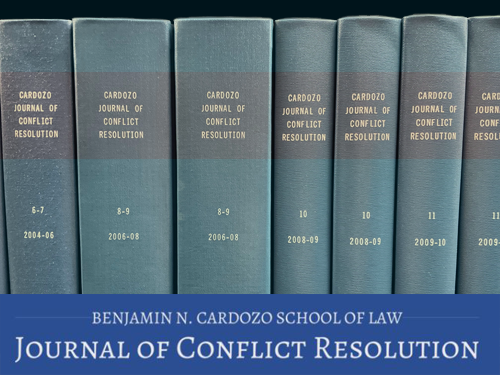Document Type
Blog Post
Publication Date
4-29-2023
Graduation Year
2024
Abstract
Art and cultural heritage disputes can involve a variety of subject matter and “sensitive non-legal issues of a commercial, cultural, ethical, historical, moral, religious, or spiritual nature, while more often than not having a distinct international character. For such complex matters, there has long been conversations about the benefits of using ADR mechanisms instead of traditional litigation to address the issues that are highly relevant and important to the parties, but which courts are often not equipped or designed to address. Art-related disputes often involve not only a variety of private parties such as artists and art dealers but also public and semi-public parties such as museums, indigenous communities, and states, all across the globe. ADR mechanisms can provide flexible and confidential forums to support creative solutions that are sustainable, interest-based, and go beyond monetary relief such as compensatory provision of art works and long-term loans. Moreover, ADR mechanisms help preserve the existing relationships between the parties, the continuation of which is often critical in resolving art-related disputes.
This post was originally published on the Cardozo Journal of Conflict Resolution website on April 29, 2023. The original post can be accessed via the Archived Link button above.
Recommended Citation
Huey, Olivia, "Confidentiality in Art-Related ADR: A Need for Change?" (2023). Cardozo Journal of Conflict Resolution (CJCR) Blog. 55.
https://larc.cardozo.yu.edu/cjcr-blog/55



